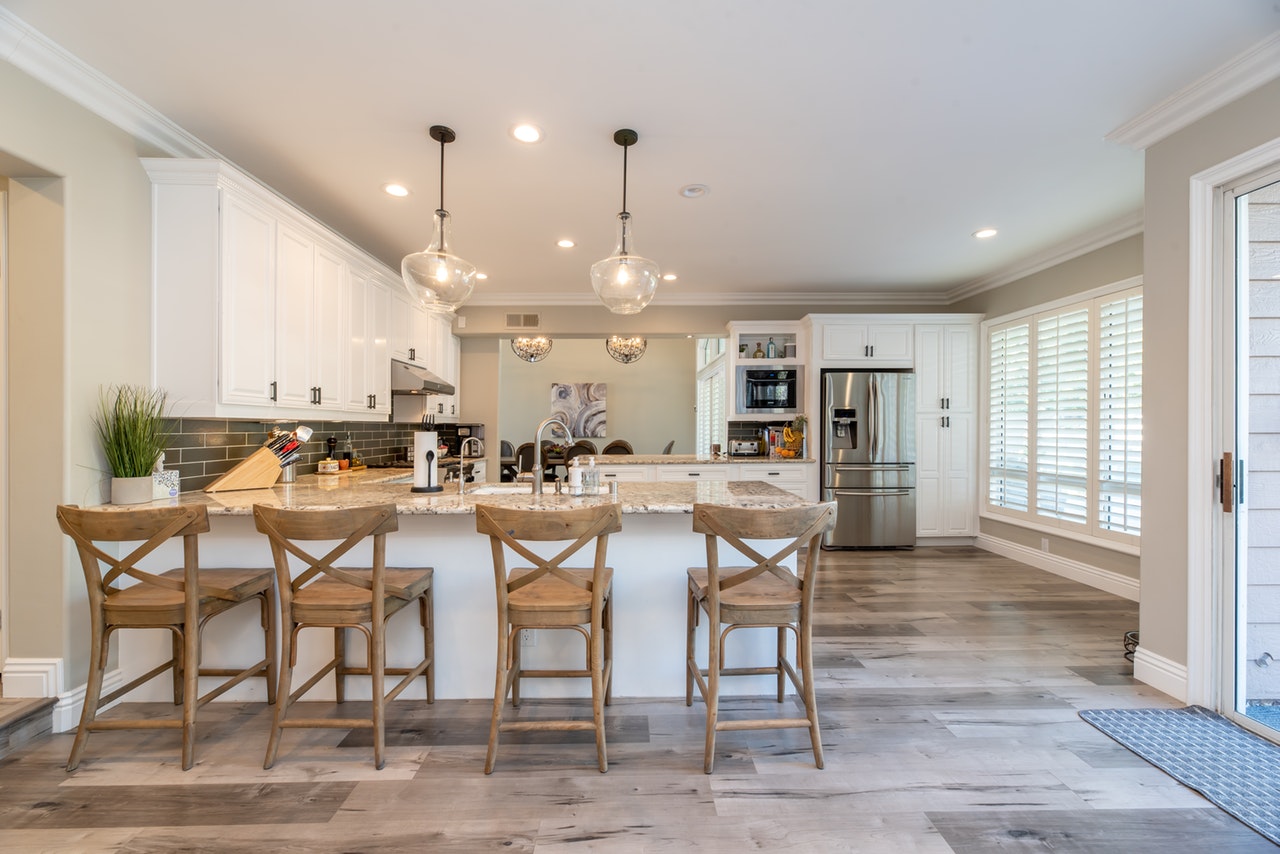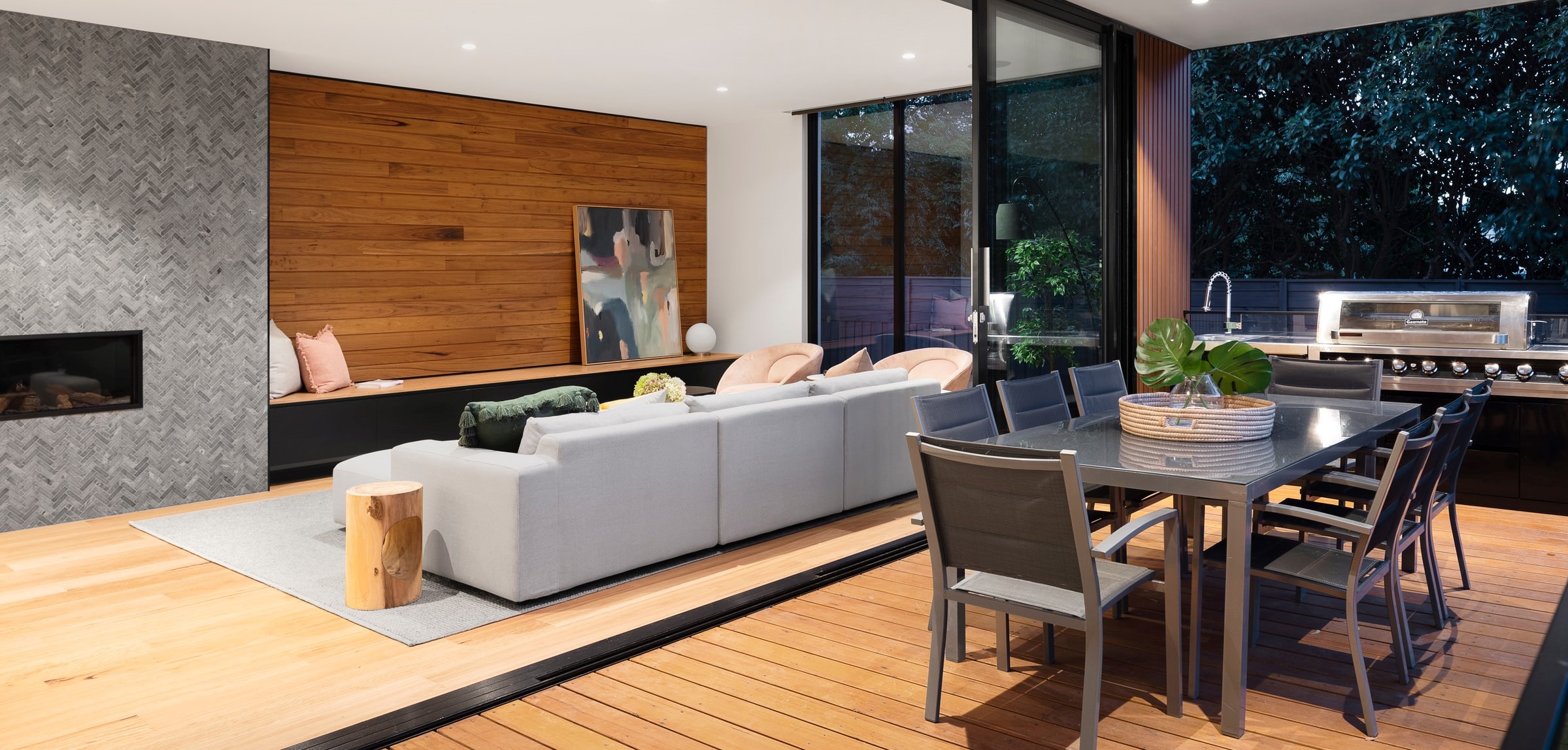Tips On How To Prepare Your Home For Sale
Attract More Buyers, Get Top Price and Sell Quickly.
Giving your property that extra appeal
First impressions are crucial. Remember that the outside of the house will be the first impression a potential buyer is going to have. The right appearance outside, followed by the right mood inside, gives you the best chance to get the highest price.
You rarely need to spend thousands of dollars in renovations or repairs to make your property attractive. All you have to do is pay attention to some obvious details, all of which can make a big difference to your final selling price.
First impressions
When you live in a property, you can overlook its little faults. It is now time to have a fresh look.
Stand in the street and look at your property as if you were seeing it for the first time. Try hard to pick faults. It is better that you find the faults, while there is time to fix them.
The challenge is to make your property as attractive as possible without spending too much.
The outside appearance
First impressions create permanent opinions, so create a positive mood for all prospective purchasers.
Neat, clean and friendly are the first steps to making your home attractive from the outside. A coat of paint, if needed, can give it a fresh look. Stick to neutral colours.
Create an appeal that says, “Welcome! Come inside”.
You want buyers to fall in love with your property, so give it that loved look.
Flowers do wonders for the front of a property; and the brighter the better. They create a homely look. You can get flowers for any season, daffodils, pansies and petunias for example. Go to the local nursery and ask for advice.
If the buyers see a potential expense, they either won’t buy or they will expect a reduction in your price. Clean the paths and the outside of your property to remove dust and cobwebs. And clean the windows so that they sparkle; few things are as ugly as dirty windows.
When buyers arrive, you want them to think, “This looks nice”. By the time they reach your front door, you want them to think, “This feels nice. I like it!”
The inside atmosphere
When buyers enter your property they should immediately feel at home. The inside atmosphere should be warm and appealing. One agent described it by saying, “A home should look and feel happily lived in”.
Make the atmosphere natural and relaxed, even if it means changing (or improving) your living habits. Buyers are aware of gimmicks such as a coffee pot brewing, a cake in the oven or classical music playing softly in the background. False attempts to add appeal often have the reverse affect.
Genuine appeal is what wins the buyers. A radio or a TV – never too loud – is a natural part of home life. Well-made beds with warm quilts and lots of pillows really make a property feel like home. Home truly is “where the heart is” and anything that increases the emotional feeling of comfort is something we all love.
Bright and airy
Make sure the property is bright and airy by opening the curtains. Fresh air, if practicable, is always best.
If you have a fireplace and it is winter, an open log fire can be a big selling feature. At the very least, make sure the property is warm in winter and cool in summer.
Try to remove clutter so your property does not look smaller than it is. The time for a clean-up or a “garage sale” is before you sell, not afterwards.
Most properties have some natural untidiness – a book beside the bed, a newspaper in the kitchen or slippers on the floor – this is acceptable and expected.
What is not acceptable is dirt and general untidiness.
Make sure the bathrooms are clean to the point of sparkling. Fresh fluffy towels add a warm feeling. Atmosphere is everything.
The bathrooms and kitchen are especially important to a woman, who is usually the major decision maker.
Odours
Nothing turns people off more than bad smells, so be sure your property smells fresh. You can buy plug-in fragrances that remove bad odours.
If you have pets, be careful, because their smell, while familiar to you, can be unpleasant to others. Take pets’ blankets and bowls outside. A dog that jumps up can be irritating and distracting, but not as bad as a savage dog that terrorises the buyers.
Wherever possible, remove your dog during inspections – take it for a walk. And always, be sure that there are no “doggie surprises” for your buyers to step in while inspecting the garden.
Minor repairs
If there is any unfinished work inside the property – such as skirting boards that have been removed – fix these things. If there are any obvious minor repairs – such as door handles missing or broken hooks – fix these too. Repair all irritating things that are likely to catch the eyes of buyers.
Sometimes a fresh coat of paint throughout the house may be required. Be very careful if you are only painting one dull room as this can suddenly make other unpainted rooms look dull too. Before you know it you have a major painting job on your hands; this could lead to replacing the carpets, even the tiles in the bathroom. Suddenly you are involved in a very expensive renovation.
The cleanliness and the mood are most important but all expense needs careful consideration. Will you get the money back?
Ask your agent’s opinion.
The best advice is to do all you can to make your property feel like a home. Make it sparkle without making it too immaculate or clinical.
Homes with warmth are the most attractive and appealing.
Staging a home for sale
If you have watched any real estate programs on television, you may be familiar with the term “House Staging”.
Staging a house is where the agent engages the services of a design consultant who knows how to make the property more appealing to buyers.
These consultants give the home a mini-makeover, but they are not always mini. The degree to which the consultants glamorise your property are only limited by your budget. I’ll say that again, YOUR budget. You pay.
Consultants’ services include painting, and decorating – anything from hiring furniture, curtains, floor coverings, artwork and other decorations.
No doubt home staging will make your home look immaculate and will appeal to buyers, but at what cost? This is what you must consider.
Ignore the hype and get the facts. How much will it cost for the consultant’s services? What furniture and decorations are you renting? Find out the initial costs, and the ongoing costs? Consider what happens if you do not sell!
Staging can be a costly investment. Agents like Staging because it cements your commitment to sell. The more money you invest in the sale, the less likely you are to withdraw your property from sale. Agents love sellers making upfront monetary investments.
Like all investments, however, you must weigh up the risk and cost versus the return.
Unless your property is vacant or in dire need of outside help, you may not need Staging.
During the inspection
Although good agents like it if you can meet prospective purchasers – they say that this reduces the risk of buyers making low offers – when the inspection gets underway it is best if you (and your dog) are not home.
Too many people in a property can make it look small – have you ever felt this at an open for inspection, when hordes of “lookers” are squeezing past each other?
If you do stay home, do not remain in the most appealing room.
Buyers will be conscious of their intrusion into your life; they rarely feel relaxed when you are in the same room.
Genuine buyers take their time to inspect a property, so give them plenty of time to savour the best rooms in the property. If you trust the agent, let the agent stay with the buyers and don’t expect the agent to point out all the obvious features.
Some of the best salespeople are silent when buyers are inspecting a home. The time for most questions is after the inspection, or if the buyers require a second or third inspection.
The value of major improvements
If you spend enough money in making the property more attractive, you will usually make it easier to find a buyer.
But you need to find middle ground. It makes no sense if the cost of the improvements is too high – often it would be more cost effective to reduce your asking price.
Most major improvements are personal and do not add the value you expect. An example is a swimming pool. If you pay $45,000 for a pool, the pool salesperson may tell you this increases the value of your property. But if the buyers don’t want a pool you will not get back what you paid.
Most improvements often return only half their cost upon sale.
You may have to wait years to find a buyer with the same personal taste as you.
If your property needs major renovation, it may be better to avoid the expense of renovation and instead select a lower asking price.
Many buyers want to renovate a property to suit their own taste. While minor improvements can give you a great return on your selling price, major improvements are often a big mistake.
Either spend a little bit of money to sell your property or spend a lot of money and stay there.
We hope you found our tips on how to prepare your home for sale helpful.
By Paul Kounnas



